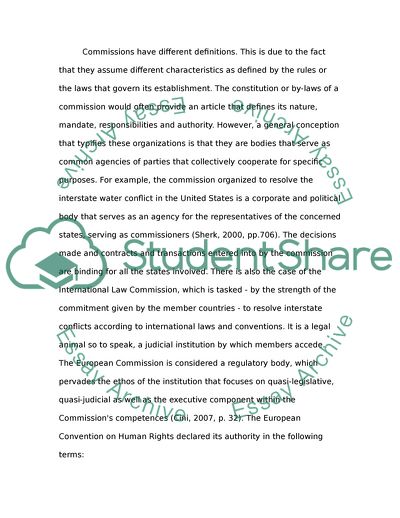Cite this document
(The Commission as Agent of States Essay Example | Topics and Well Written Essays - 2250 words, n.d.)
The Commission as Agent of States Essay Example | Topics and Well Written Essays - 2250 words. https://studentshare.org/law/1768080-to-what-extent-is-the-commission-an-agent-of-the-states
The Commission as Agent of States Essay Example | Topics and Well Written Essays - 2250 words. https://studentshare.org/law/1768080-to-what-extent-is-the-commission-an-agent-of-the-states
(The Commission As Agent of States Essay Example | Topics and Well Written Essays - 2250 Words)
The Commission As Agent of States Essay Example | Topics and Well Written Essays - 2250 Words. https://studentshare.org/law/1768080-to-what-extent-is-the-commission-an-agent-of-the-states.
The Commission As Agent of States Essay Example | Topics and Well Written Essays - 2250 Words. https://studentshare.org/law/1768080-to-what-extent-is-the-commission-an-agent-of-the-states.
“The Commission As Agent of States Essay Example | Topics and Well Written Essays - 2250 Words”. https://studentshare.org/law/1768080-to-what-extent-is-the-commission-an-agent-of-the-states.


